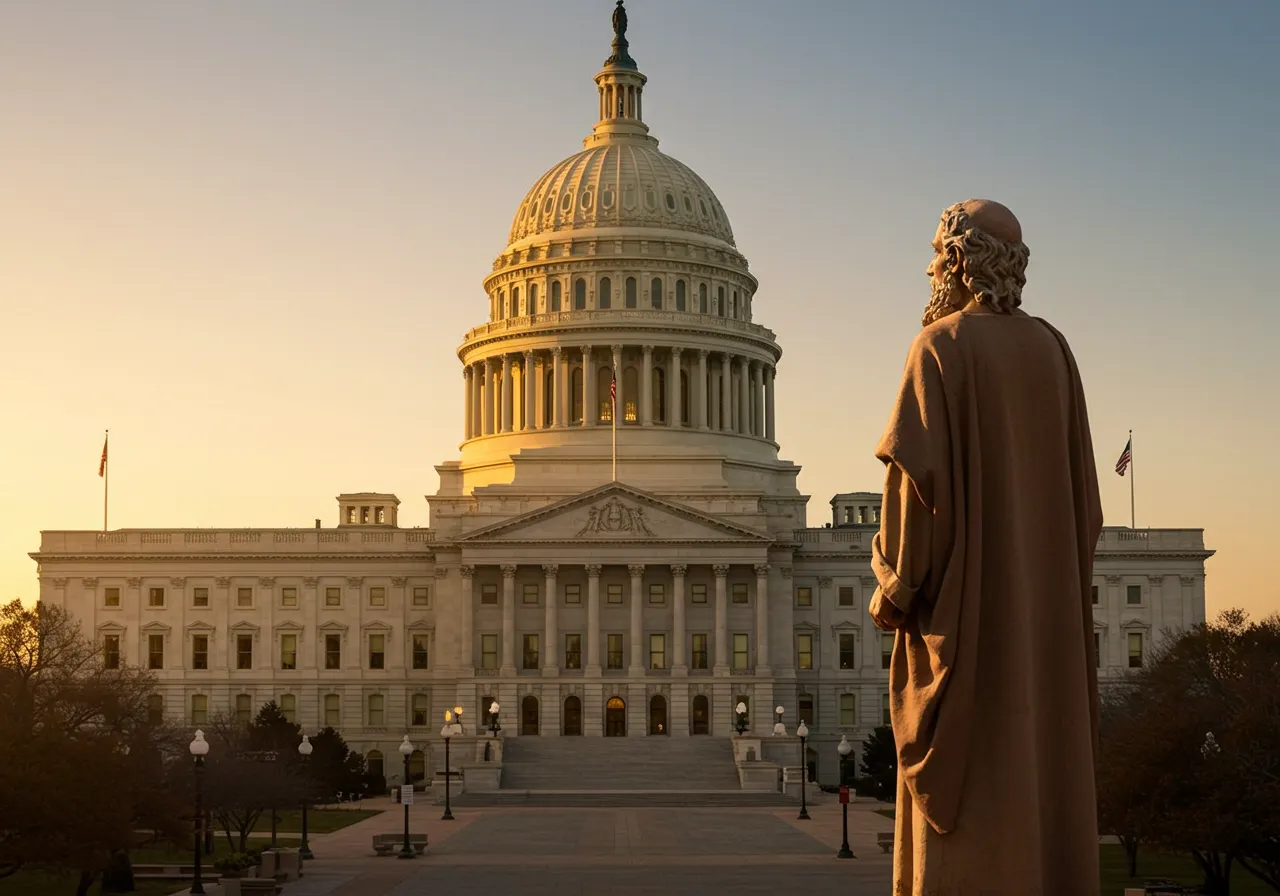The Georgia Senate voted earlier this month to install a statue of US Supreme Court Justice Clarence Thomas on the grounds of the state capitol building, a move that has drawn ire from within and outside the halls of the legislature.
The 32-20 vote on Senate Bill 69 came down along party lines on February 14, bracketed by strong rebuke from local Democrat officials. The measure had originally been introduced on the first day of Black History Month and progressed quickly through the heavily Republican upper house.
“An Uncle Tom... is a person who, back during the days of slavery, sold his soul to the slave masters,” said Sen. Emanuel Jones, a Black Democrat, after the bill was approved.
“So when we think about a person in the Black community who’s accomplished but [whose] policies seek to subvert—some would even say suppress—the achievements and accomplishments of people of color, I couldn’t help but to think about that term in expressing my dissatisfaction with this particular legislation.”
Georgia State Sen. Emanuel Jones (D) calls U.S. Supreme Court Justice Clarence Thomas an “Uncle Tom” while opposing a bill to place a statue of Thomas at the capitol:
— The Recount (@therecount) February 15, 2023
“Y’all just don’t get it. And I don’t expect people of non-color to get the sensitivity that we feel.” pic.twitter.com/AzVxQr1UY9
Thomas, a Georgia native whose rural upbringing in Pin Point and Savannah has garnered much attention during his legal career, has been personally uninvolved with the laudatory proceedings in his home state. The current yearlong session of the Supreme Court began in October in Washington.
The initiative to honor Thomas comes as tensions are still boiling from the conservative justices’ overturning of Roe v. Wade last summer to end federal protection of abortion rights, and the looming reality that more pivotal decisions are to come.
A member of that bloc, Thomas himself has come under fire individually for his recent spearheading of efforts to curtail voting rights legislation established during the Civil Rights Movement, and for his perceived lack of impartiality on various other matters.
His wife, Ginni Thomas, played an infamously significant role in supporting rioters at the Capitol insurrection in Washington on January 6, 2021. As recently as last fall, she reportedly repeated claims that the 2020 presidential election was in fact won by Donald Trump.
“[She] actually encouraged this coup of violence in an attempt to stop the peaceful transfer of power for the first time in our country’s history,” said Georgia Democrat Sen. Nikki Merritt, who is Black.
Justice Thomas, a devout Catholic and Constitutional originalist, has also been criticized for his involvement with capital punishment while on the bench, siding with the Supreme Court’s Republican-appointed wing in denying various appeals from death row inmates. On Thursday, a convicted murderer was executed in Florida after a petition received the day before by Thomas was denied.
The act of honoring him is seen by opponents as a political ploy, taking advantage of recent electoral gains to rub salt in the wounds of an ailing Democratic Party. Georgia Republicans say it’s fair game, citing as their justification the Georgia Capitol statue of President Jimmy Carter.
“There are citizens, probably members of this body, that take issue with his policies when he was governor or president, but we respect history,” said Sen. Jason Anavitarte, a Republican.
(Just days later, Carter's family announced his entry into hospice care, occasioning an outpouring of support from around the country for a man now revered by many across partisan lines.)
According to the new legislation, which will now go to the GOP-led state House, the statue depicting the nation’s second Black Supreme Court justice would be paid for by private donors, including “ individuals, organizations, or foundations.”
The proposed monument committee that would handle the plans is to be led by five members of the Georgia General Assembly, all of whom would be appointed respectively by high-ranking state Republicans.
Nate Tinner-Williams is co-founder and editor of Black Catholic Messenger and a seminarian with the Josephites.









